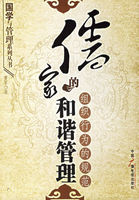It is a custom, as old as the institution I dare say, for cadets of the first and second classes to march in the front rank, while all others take their places in the rear rank, with the exception that third-classmen may be in the front rank whenever it is necessary for the proper formation of the company to put them there. The need of such a custom is apparent. Fourth-classmen, or plebes not accustomed to marching and keeping dressed, are therefore unfit to be put in the front rank. Third- classmen have to give way to the upper classmen on account of their superior rank, and are able to march in the front rank only when put there or allowed to remain there by the file-closers. When I was a plebe, and also during my third-class year, I marched habitually in the rear rank, as stated with reason elsewhere. But when I became a second-classman, and had by class rank a right to the front rank, I took my place there.
Just about this time I distinctly heard the cadet captain of my company say to the first sergeant, or rather ask him why he did not put me in the rear rank.
The first sergeant replied curtly, "Because he's a second-classman now, and I have no right to do it."This settled the question for the time, indeed for quite a while, till the incident above referred to occurred.
At a formation of the company for retreat parade in the early spring of '76, it was necessary to transfer some one from the front to the rear rank. Now instead of transferring a third- classman, the sergeant on the left of the company ordered me, a second classman, into the rear rank. I readily obeyed, because I felt sure I'd be put back after the company was formed and inspected, as had been done by him several times before. But this was not done. I turned to the sergeant and reminded him that he had not put me-back where Ibelonged. He at once did so without apparent hesitation or unwillingness. He, however, reported me for speaking to him about the discharge of his duties. For this offence, I submitted the following explanation:
WEST POINT, N. Y., April 11, 1876.
Offense: Speaking to sergeant about formation of company at parade.
Explanation: I would respectfully state that the above report is a mistake. I said nothing whatever about the formation of the company. I was put in the rear rank, and, contrary to custom, left there. As soon as the command " In place, rest," was given, I turned to the nearest sergeant and said, "Mr.--, can I take my place in the front rank?" He leaned to the front and looked along the line. I then said, "There are men in the front rank who are junior to me." I added, a moment after, "There is one just up there," motioning with my head the direction meant. He made the change.
Respectfully submitted,HENRY O. FLIPPER,Cadet Priv., Comp. "D," First Class.
To Lieut. Colonel--, Commanding Corps of Cadets.
This explanation was sent by the commandant to the reporting sergeant. He indorsed it in about the following words:
Respectfully returned with the following statement:
It was necessary in forming the company to put Cadet Flipper in the rear rank, and as I saw no third-classman in the front rank, I left him there as stated. I reported him because I did not think he had any right to speak to me about the discharge of my duty.
"------, Cadet Sergeant Company "D."
A polite question a reflection on the manner of discharging one's duty! A queer construction indeed!
Observe, he says, he saw no third-classman in the front rank. It was his duty to be sure about it, and if there was one there to transfer him to the rear, and myself to the front rank. In not doing so he neglected his duty and imposed upon me and the dignity of my class. I was therefore entirely justified in calling his attention to his neglect.
This is a little thing, but it should be borne in mind that it is nevertheless of the greatest importance. We know what effect comity or international politeness has on the relations or intercourse between nations. The most trifling acts, such as congratulations on a birth or marriage in the reigning family, are wonderfully efficacious in keeping up that feeling of amity which is so necessary to peace and continued friendship between states. To disregard these little things is considered unfriendly, and may be the cause of serious consequences.
There is a like necessity, I think, in our own case.
Any affront to me which is also an affront to my class and its dignity deserves punishment or satisfaction. To demand it, then, gives my class a better opinion of me, and serves to keep that opinion in as good condition as possible.
I knew well that there were men in the corps who would readily seize any possible opportunity to report me, and I feared at the time that I might be reported for speaking to the sergeant. I was especially careful to guard against anger or roughness in my speech, and to put my demand in the politest form possible. The offence was removed. I received no demerits, and the sergeant had the pleasure or displeasure of grieving at the failure of his report.
I am sorry to know that I have been charged, by some not so well acquainted with West Point and life there as they should be to criticise, with manifesting a lack of dignity in that I allowed myself to be insulted, imposed upon, and otherwise ill-treated. There appears to them too great a difference between the treatment of former colored cadets and that of myself, and the only way they are pleased to account for this difference is to say that my good treatment was due to want of "spunk," and even to fear, as some have said. It evidently never occurred to them that my own conduct determined more than all things else the kind of treatment I would receive.
Every one not stubbornly prejudiced against West Point, and therefore not disposed to censure or criticise every thing said or done there, knows how false the charge is.















